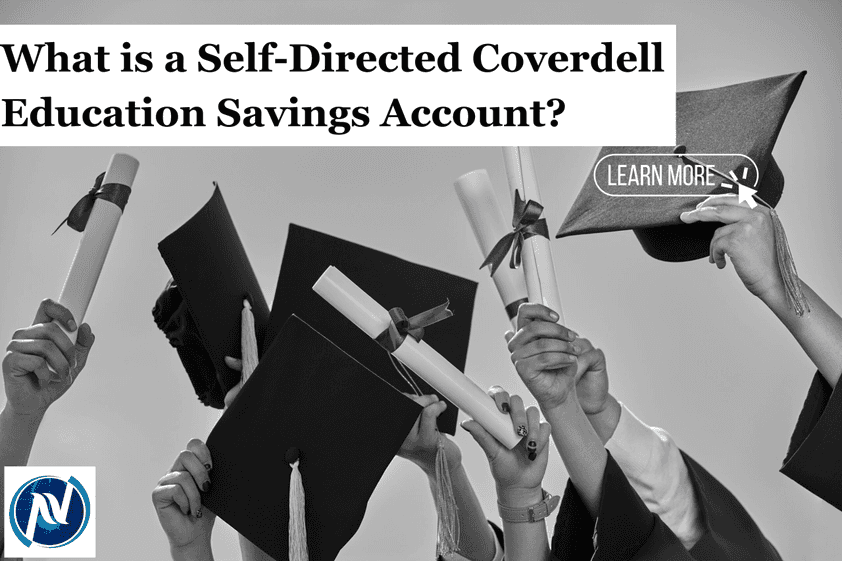What is a Self-Directed Coverdell Education Savings Account?
A Self-Directed Coverdell Education Savings Account is a tax-advantaged ESA (education savings account) to help individuals invest for the long-term education expenses of a beneficiary, such as a child. These accounts make it possible to make tax-advantaged investments—and with self-direction, it’s possible to place those investments in real estate, private notes, precious metals, etc. That’s …

A Self-Directed Coverdell Education Savings Account is a tax-advantaged ESA (education savings account) to help individuals invest for the long-term education expenses of a beneficiary, such as a child. These accounts make it possible to make tax-advantaged investments—and with self-direction, it’s possible to place those investments in real estate, private notes, precious metals, etc.
That’s the definition of this unique savings vehicle. But is a Self-Directed Coverdell Education Savings Account right for you? Let’s explore.
How a Self-Directed Coverdell Education Savings Account Works
A Self-Directed Coverdell Education Savings Account functions a lot like a standard Coverdell Education Savings Account. But there’s one key difference: the range of investment options available.
The traditional approach to CESAs typically limits investors to stocks, bonds, and mutual funds—whatever a brokerage might allow you. A self-directed version expands those options. You can use the account to transact real estate, tax liens, private placements, and even certain precious metals.
Contributions to a Coverdell Education Savings Account are made with after-tax dollars, meaning there’s no immediate tax deduction for your efforts. But the real benefit comes in the form of tax-free growth and withdrawals, as long as the funds are used for qualified education expenses. That includes tuition, books, supplies, and even certain room and board costs for college students.
Who Benefits Most from a Self-Directed Coverdell Education Savings Account?
Parents, grandparents, or even family friends can contribute to a Coverdell Education Savings Account on behalf of a beneficiary. But there are income restrictions to consider. They’re a bit like Roth IRAs in that contributions are phased out for higher earners, so it’s important to check eligibility before setting up an account. The annual contribution limit is currently $2,000 per beneficiary, which may not seem like much. But with smart investing, those funds can grow significantly over time.
With the flexibility that comes with self-direction, this type of account is best suited for those who are comfortable with alternative assets. If you have experience with real estate, private lending, or other non-traditional investments, a Self-Directed CESA could give you more control over how education savings grow. You may be able to leverage your expertise with a certain asset, like real estate, to make your returns more powerful over time. It also appeals to those who want to diversify their investment strategy beyond what traditional brokers offer.
What to Know Before Opening an Account
A Self-Directed Coverdell Education Savings Account has some rules that account holders need to be aware of. Funds have to be used by the time the beneficiary turns 30, or the account will face taxes and penalties. If the funds aren’t used by then, they can be rolled over to another eligible family member’s Coverdell Education Savings Account to keep the tax advantages intact.
Another key point? While self-direction offers more investment choices, it also requires more responsibility. Unlike traditional brokerage accounts, self-directed accounts don’t come with built-in guidance or protection against bad investments. You’re making the choices on your own. Investors need to conduct their own due diligence and ensure that any alternative assets they choose meet IRS regulations.
If you’re looking for an education savings option that allows for a hands-on investment approach, a Self-Directed CESA could be a really nice fit. A little like a Roth IRA for college savings, it’s a great way to get some additional protection for your investments. The ability to invest in alternative assets provides opportunities for growth beyond what traditional accounts offer.
Interested in learning more? Reach out to us here by dialing 866-7500-IRA.
Get 15 minutes of free expert advice.
If you're not sure whether a self-directed IRA is right for you, schedule a 15-minute call with our industry veteran team. We'll explain the possibilities, help you evaluate your options, and answer all your questions - no pressure, no obligations.
